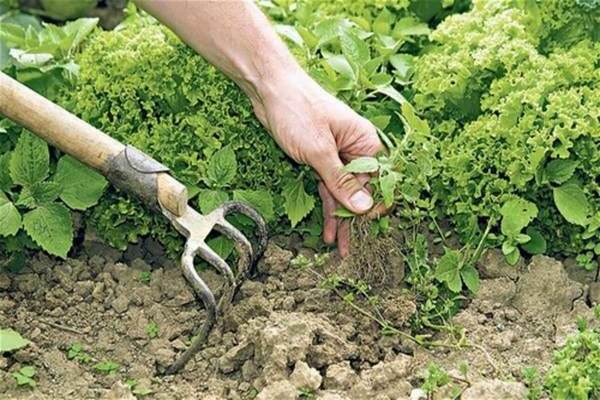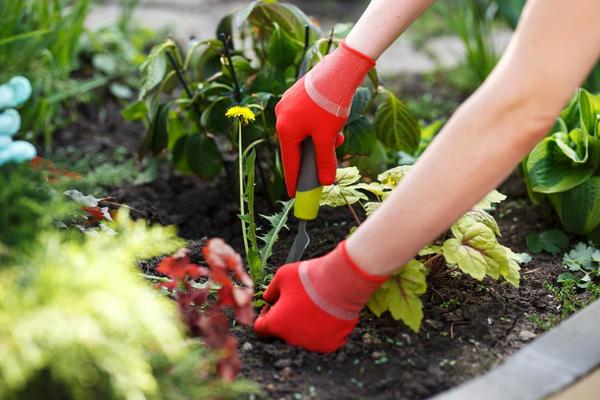Weeds: harm and benefit to humans and the garden
Content:
A weed is a wild plant that lives on land used as agricultural land. To put it simply, these are not cultivated plants and are not desired by gardeners. However, despite the fierce dislike of summer residents, weeds have equal rights with all other plants in nature. Weeds can have medicinal properties, and no matter how strange it may sound, some of them even help you and me in our beds in the garden! A weed can successfully fight an annoying pest, can serve as a beacon to alert you of a problem in the soil, or even be a fertilizer for cultivated plants. That is, weeds have a lot of different functions. But let's first look at the negative aspects of this persistent guest in the garden.
What harm do weeds do

● Weeds are the so-called. wild plants and, being in the wild, they are stronger and more developed in comparison with cultivated plants. Weeds exist without human help, therefore, when competing with a cultivated plant, of course, they win. They consume much more water and the substances they need from the soil, thereby preventing the garden plant from developing properly. Larger and more branchy weeds prevent plants from photosynthesis. Statistics show that a quarter of all ruined crops in agriculture died precisely because of weeds. Therefore, an experienced gardener must protect his garden and prevent persistent pests from growing.
● Weeds are carriers of many diseases that are not scary for them, but if a cultivated plant gets infected, the result will be sad. For example, grain rust is carried by nettles or wheatgrass. Potato cancer is spread from nightshade. Most of the viruses originate from the weed plant and are transferred to the cultivated plant through insects.
● Weeds are a haven for many pests. For example, a winter moth lays its eggs in a bindweed. The caterpillars of the winter moth feed on cereals, thereby destroying the plants of this family. These insects are the worst enemies of many cultivated plant species. Even when the weeds do not grow on the beds themselves, but are in the space adjacent to the garden or garden, this increases the risk of pest attacks. Therefore, it is worth weeding out weeds even outside the garden.
● Among the weeds, there are parasitic plants such as dodders and broomrape, which attack cultivated plants, taking their nutrients, thereby killing them.
● Accidentally falling into cultivated plants, weeds can poison animals or humans. For example, flour made from seeds that have accidentally got some weed seeds will become dangerous to eat.
The benefits of weeds in the garden

● As surprising as it sounds, many types of weeds can be used for food. If you cook them correctly, you can end up with a dish that is not only tasty, but also healthy for your health. For example, you can make a salad from dream and add it to various soups. Burdock roots can be boiled and fried. Excellent cutlets are obtained from wheatgrass roots ground in a meat grinder. Delicious and healthy salads are made from dandelions containing beta-keratonin and clover leaves. Also, a salad can be made from wild primrose, which has a huge amount of vitamin C. About nettle soup, too, probably, many have heard.However, remember that plants tend to absorb substances from the soil and air, so never pick wild plants near highways.
● Most weeds have medicinal properties. Wheatgrass helps relieve joint pain and kidney disease. Burdock is a prophylactic agent against cancer. But do not forget that even the most useful plants have their own contraindications, so always approach such treatment methods wisely and carefully.
● If we return to the conversation about the beds, then weeds can help us. Weeds weeded out in time can serve as compost and fertilizer for plants growing in the garden. Such a fertilizer from weeds is able to enrich the soil with all the useful and organic substances necessary for it, for example, dandelion leaves have a large amount of potassium, and horsetail is rich in silicon and nitrogen.
● Some weeds can protect crops from pests. Tansy, wormwood and dandelion contain biologically active substances phytoncides, which are a natural enemy of many insects and parasites. Such a remedy against parasites is 100% natural and does not pose any danger to humans or animals.
● Some weeds can help you learn about the condition of the soil in your garden. The appearance of violets, horsetails or buttercups in the beds may indicate an increase in acidity in the soil; liming is necessary. White marsh can be a sign of soil depletion. A large number of daisies in your garden suggests that it is time to weed the ground.
● Weeds can be used to mulch the soil. This will protect plants from various diseases and unfavorable environmental conditions, slow down the process of moisture evaporation, which will reduce the number of required watering, and protect the soil from overheating and drying out. IMPORTANT: use only those weeds for mulch that do not have seeds, otherwise there is a danger of their germination in the place they do not want.
Nature did not create anything superfluous, therefore even seemingly harmful weeds have a huge list of useful properties for both cultivated plants and humans. Even if most weeds do not have a place in the beds, a competent gardener should be able to maintain the necessary balance for the most profitable result.

